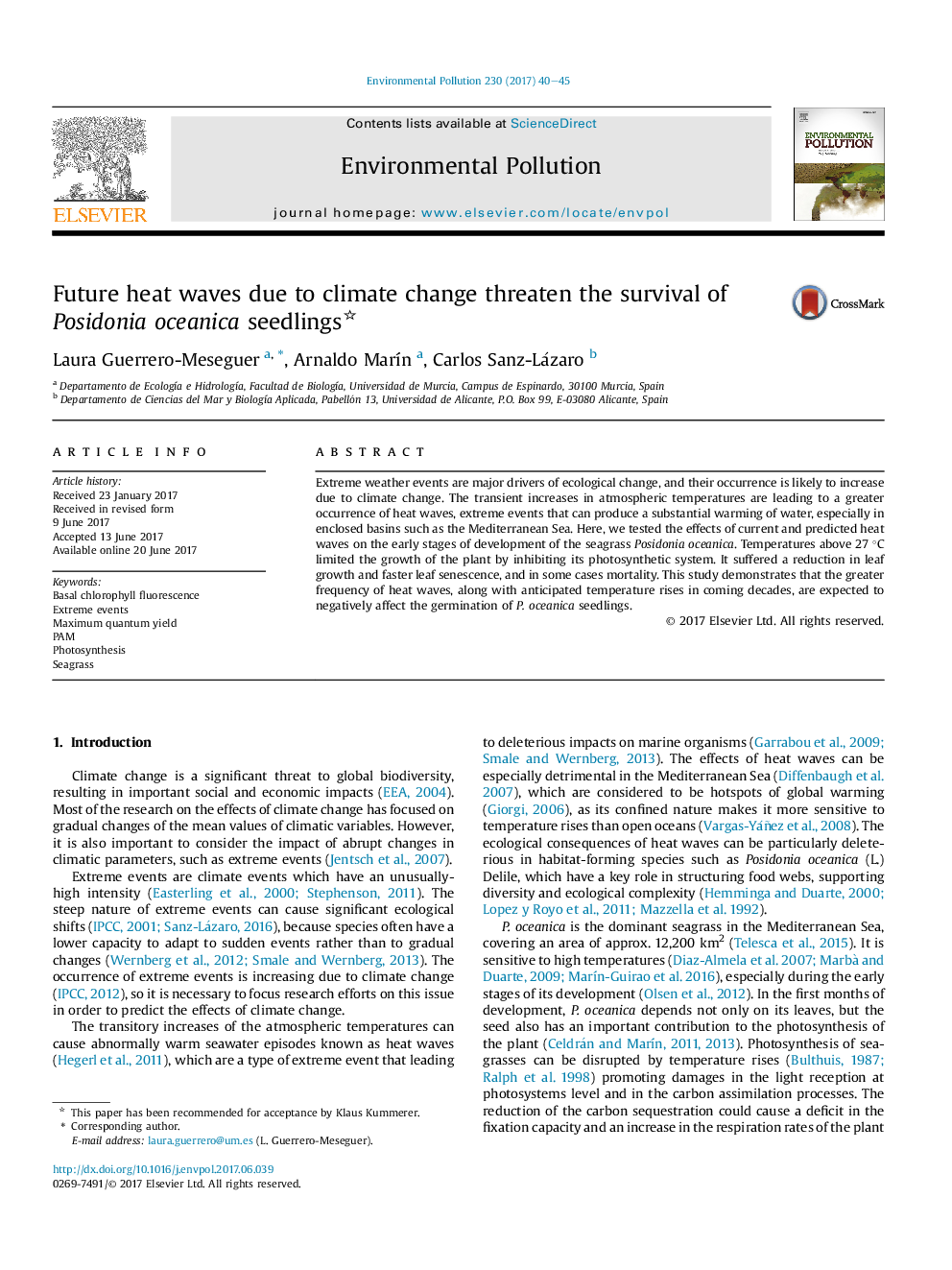| Article ID | Journal | Published Year | Pages | File Type |
|---|---|---|---|---|
| 5748649 | Environmental Pollution | 2017 | 6 Pages |
â¢Future heat waves will damage the photosynthetic system of the most abundant seagrass of Mediterranean Sea.â¢Long-term exposure to temperatures above 29 °C reduces P. oceanica seedlings development.â¢The greater occurrence of this type of extreme events could compromise the colonization of this habitat-forming species.
Extreme weather events are major drivers of ecological change, and their occurrence is likely to increase due to climate change. The transient increases in atmospheric temperatures are leading to a greater occurrence of heat waves, extreme events that can produce a substantial warming of water, especially in enclosed basins such as the Mediterranean Sea. Here, we tested the effects of current and predicted heat waves on the early stages of development of the seagrass Posidonia oceanica. Temperatures above 27 °C limited the growth of the plant by inhibiting its photosynthetic system. It suffered a reduction in leaf growth and faster leaf senescence, and in some cases mortality. This study demonstrates that the greater frequency of heat waves, along with anticipated temperature rises in coming decades, are expected to negatively affect the germination of P. oceanica seedlings.
Graphical abstractDownload high-res image (386KB)Download full-size image
